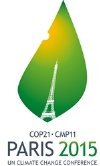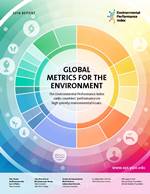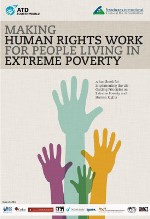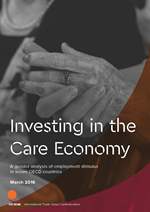Other news
Published on Mon, 2016-06-27 09:41
African Civil Society is calling on Governments at this 14th session of the United Nations Conference on Trade and Development (UNCTAD 14) to rise up to the fundamental challenge of equitable development in and for Africa within the global order. 'UNCTAD's foundational vision is as critical today as 50 years ago. The specific developmental challenges which UNCTAD sought to address are still here with us, and in the case of Africa have become more acute' the statement stated. Hence the conference must provide UNCTAD with the necessary space and means to articulate the policy requirements of Africa's structural economic transformation and work in support of their realization. UNCTAD 14 will be held in Nairobi, from 15th to the 17th of July 2016. |
Published on Fri, 2016-05-20 09:59
The first inter-sessional meeting of the United Nations Framework Convention on Climate Change (UNFCCC) after the adoption of the Paris Agreement at the 21st Conference of the Parties (COP21) in Paris last year, opened in Bonn on 16 May. H. E. Mr. Manasvi Srisodapol of Thailand, the Special Representative of the Chair of the Group of 77 and China on Climate Change, speaking for the Group said as Parties move into the implementation of the Paris Agreement, the delicate balance of all issues achieved in Paris as well as the principles and provisions of the Convention must be preserved. |
Published on Fri, 2016-05-13 10:31
"The growing inequality in the world is perhaps the single most imposing barrier to achieving the Sustainable Development Goals (SDGs) laid out by the 2030 Agenda" say the international trade unions in a document addressed to the United Nations. The representatives of the workers argue that "the deepening of inequality has been accompanied by an erosion of labour institutions" and defend social dialogue as helpful to reverse this trend and tackle inequality. "Leaving no one behind" means tackling inequality, says the submission by the Worker and Trade Union Major Group to the High Level Political Forum (HLPF). |
Published on Mon, 2016-05-09 11:57
An “Environmental Performance Index” to be launched on May 9 at the UN claims to align itself with the Sustainable Development Goals (SDGs) but actually hides the impact of unsustainable consumption and production patterns in the North as well as the contributions of the Global South to achieving the internationally agreed targets. The EPI (available here), now in its 10th edition, is authored by the Yale Center for Environmental Law and Policy, in collaboration with the World Economic Forum (Davos). This year’s report claims to have a “parallel approach” to the internationally agreed SDGs in its “use of quantitative metrics to evaluate policy performance” and maintains that “aligning EPI’s indicators with the SDGs provides a baseline for evaluating national performance and shows how far countries are from reaching global targets”. |
Published on Fri, 2016-05-06 11:30
The adoption of the Guiding Principles on Extreme Poverty and Human Rights by the United Nations Human Rights Council in 2012 was a significant victory in the effort to end extreme poverty. It acknowledged that poverty is not simply a matter of lack of income. These Guiding Principles clearly identify actions that governments and other relevant actors should take to ensure that all people are able to enjoy their human rights. ATD Fourth World worked alongside our partners to complete this important document. The next step in their work was to translate these principles into language that everyone can understand and to suggest actions at the local level that groups working alongside people in poverty can put into place. In collaboration with a group of ten international non-governmental organizations active at the field level, they developed an implementation handbook on these Guiding Principles. |
Published on Fri, 2016-04-22 13:48
The traditional definition of aid is being eroded at the same time that governments have committed to achieving the UN's ambitious Sustainable Development Goals (SDGs), Jeffrey Sachs, special adviser to the UN Secretary-General on development, told IPS Thursday. "A lot of governments have a kind of magical thinking which is, we're all for the Sustainable Development Goals but don't come to us if you want to achieve them, go borrow from the private markets," said Sachs. Aldo Caliari, who represents civil society in UN Financing for Development (FfD) negotiations, told journalists here Monday that there has been a "significant shift in the language" in these negotiations towards "a larger presence of the private sector". |
Published on Fri, 2016-04-22 11:41
The money needed to fight climate change and make the Sustainable Development Goals a reality is hidden in tax havens and stowed away in the pockets of vulture funds, as world leaders gather at the UN to sign the climate treaty and discuss the new goals. |
Published on Wed, 2016-03-30 14:49
More public investment in caring infrastructure is well warranted under existing evidence, is the message that emerges from a new study released recently by the ITUC (“the study”). The study shows that investment into the care economy of 2 per cent of GDP in just 7 countries would create over 21 million jobs and help countries overcome the twin challenges of ageing populations and economic stagnation. Investing in care narrows the gender pay gap, reduces overall inequality and helps redress the exclusion of women from decent jobs. |
Published on Tue, 2016-03-29 14:26
The United Nations Conference on Trade and Development (UNCTAD) concept of interdependence between countries and policy areas can be employed in the follow-up and monitoring of the implementation of the 2030 Agenda for Sustainable Development, says a recent policy brief of this international agency. UNCTAD argues that the 2030 Agenda for Sustainable Development substantially increases the demand for evidence-based analysis and integrated and coordinated policy support. |
Published on Thu, 2016-03-17 20:23
The two-day UNCTAD expert meeting (16-17 March) on investment, innovation and entrepreneurship will be taking stock of recent developments in investment policy at the national, bilateral, regional and multilateral levels, in particular reform efforts related to the International Investment Agreements (IIA) regime. According to UNCTAD, the Multi-Year Expert Meeting on Investment, Innovation and Entrepreneurship for Productive Capacity-Building and Sustainable Development will also address policy perspectives with regards to science, technology and innovation (STI) and provide an update on entrepreneurship policies, in the context of the Sustainable Development Goals (SDGs). |
SUSCRIBE TO OUR NEWSLETTER










